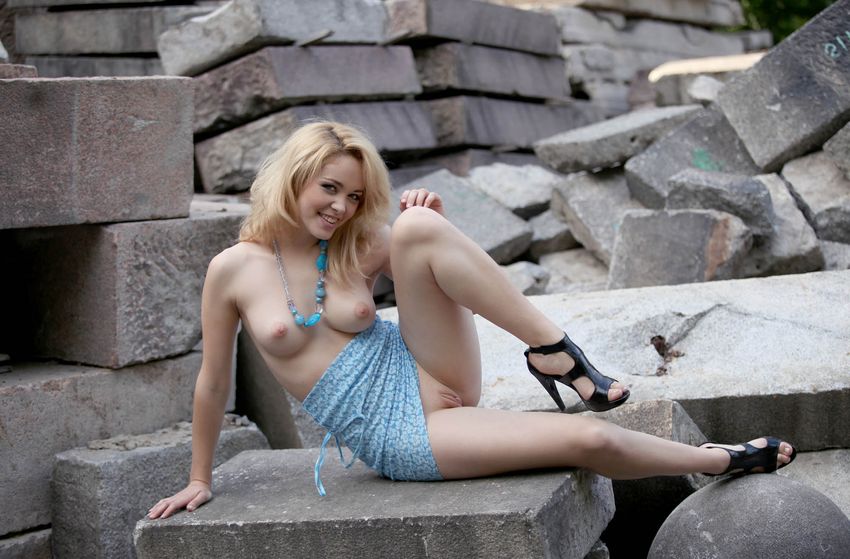|
|
Young Blonde Girl Reveals Her Blue Chemise, Necklace And Black High Heels On Stone Brick Block Remains
|
An oval or circular trench, 6–9 meters wide, 2-2.5 meters deep, and 100–150 meters in circumference, is dug. A tall exhaust chimney is constructed in the centre. Half or more of the trench is filled with "green" (unfired) bricks which are stacked in an open lattice pattern to allow airflow. The lattice is capped with a roofing layer of finished brick.
In operation, new green bricks, along with roofing bricks, are stacked at one end of the brick pile; cooled finished bricks are removed from the other end for transport. In the middle the brick workers create a firing zone by dropping fuel (coal, wood, oil, debris, etc.) through access holes in the roof above the trench.
The advantage of the BTK design is a much greater energy efficiency compared with clamp or scove kilns. Sheet metal or boards are used to route the airflow through the brick lattice so that fresh air flows first through the recently burned bricks, heating the air, then through the active burning zone. The air continues through the green brick zone (pre-heating and drying them), and finally out the chimney where the rising gases create suction which pulls air through the system. The reuse of heated air yields savings in fuel cost.
As with the rail process above, the BTK process is continuous. A half dozen laborers working around the clock can fire approximately 15,000-25,000 bricks a day. Unlike the rail process, in the BTK process the bricks do not move. Instead, the locations at which the bricks are loaded, fired, and unloaded gradually rotate through the trench.
|
|









